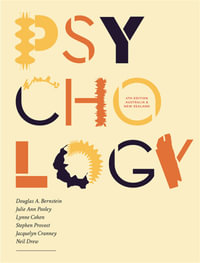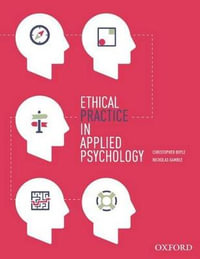"The authors have provided an exhaustive overview of the issues involved in eyewitness identification [including] previous and more recent research in the field. ... The'Essays in Cognitive Psychology' series always produce high quality books and 'The Psychology of Eyewitness Identification' continues that tradition. It is suitable for students and researchers alike as it is an accessible text that is very enjoyable to read and also very informative - two great qualities - and a book which is well worth reading for individuals interested in this kind of area." - Rhian Worth, Bangor University, UK, in Europe's Journal of Psychology
"Despite the tragedies that have arisen from an overreliance on eyewitness evidence, the message of The Psychology of Eyewitness Identification is a positive one. Through consideration of the interplay of theory and research, the authors reveal the variables and practices that influence accuracy, and point to steps that can be taken to benefit the criminal justice system. Students of memory in the classroom or the courtroom will find The Psychology of Eyewitness Identification an essential guide." - Scott D. Gronlund, Ph.D., University of Oklahoma, USA
"The Psychology of Eyewitness Identification is a comprehensive and clear treatment of eyewitness identification science and its many productive connections to police practice and legal policy. The authors bring a careful, well-reasoned perspective, rigorous detail, and fresh examples that enliven their exploration of this significant research effort. The first chapter cleverly and compellingly draws the reader to the problem of eyewitness error. From that point, the book addresses the complexities of experimental and field research in a readable and engaging manner, with emphasis on the role of psychological research in helping the criminal justice system work more effectively." - Nancy K. Steblay, Professor of Psychology, Augsburg College, Minneapolis, MN
"In conception and execution, this book does something that is both original and needed. Instead of taking a single route into the topic, it mixes complementary perspectives - from research on perception, memory, social reasoning, and philosophy to arrangements in a police lineup and the confidence of jurors in a trial. It is immensely helpful and illuminating." - George Graham, Professor of Philosophy and Neuroscience, Georgia State University, Atlanta, GA
"The authors have provided an exhaustive overview of the issues involved in eyewitness identification [including] previous and more recent research in the field. ... The'Essays in Cognitive Psychology' series always produce high quality books and 'The Psychology of Eyewitness Identification' continues that tradition. It is suitable for students and researchers alike as it is an accessible text that is very enjoyable to read and also very informative - two great qualities - and a book which is well worth reading for individuals interested in this kind of area." - Rhian Worth, Bangor University, UK, in Europe's Journal of Psychology
"Despite the tragedies that have arisen from an overreliance on eyewitness evidence, the message of The Psychology of Eyewitness Identification is a positive one. Through consideration of the interplay of theory and research, the authors reveal the variables and practices that influence accuracy, and point to steps that can be taken to benefit the criminal justice system. Students of memory in the classroom or the courtroom will find The Psychology of Eyewitness Identification an essential guide." - Scott D. Gronlund, Ph.D., University of Oklahoma, USA
"The Psychology of Eyewitness Identification is a comprehensive and clear treatment of eyewitness identification science and its many productive connections to police practice and legal policy. The authors bring a careful, well-reasoned perspective, rigorous detail, and fresh examples that enliven their exploration of this significant research effort. The first chapter cleverly and compellingly draws the reader to the problem of eyewitness error. From that point, the book addresses the complexities of experimental and field research in a readable and engaging manner, with emphasis on the role of psychological research in helping the criminal justice system work more effectively." - Nancy K. Steblay, Professor of Psychology, Augsburg College, Minneapolis, MN
"In conception and execution, this book does something that is both original and needed. Instead of taking a single route into the topic, it mixes complementary perspectives - from research on perception, memory, social reasoning, and philosophy to arrangements in a police lineup and the confidence of jurors in a trial. It is immensely helpful and illuminating." - George Graham, Professor of Philosophy and Neuroscience, Georgia State University, Atlanta, GA
























